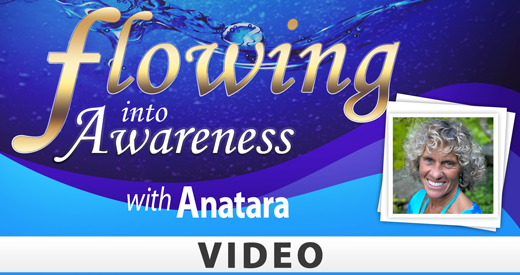| YogaHub |  |
The Power of Belief
 A few weeks ago, I wrote a blog about a newspaper article. This year’s unusually high military suicide rate had sparked a radical new approach to soldiering, whereby yoga was being offered on the frontlines to manage stress. I came down – rather hamfistedly – against the theory and principles behind this development.
A few weeks ago, I wrote a blog about a newspaper article. This year’s unusually high military suicide rate had sparked a radical new approach to soldiering, whereby yoga was being offered on the frontlines to manage stress. I came down – rather hamfistedly – against the theory and principles behind this development.
Predictably, however, since posting the blog, a heated discussion has ensued regarding the propriety of yoga for soldiers, with many people suggesting I had been hard-nosed and unfair.
Respondents, it seems, are unequivocally in favour of this change of program, sympathizing with the traumatized and often shell-shocked purveyors of violence. And they’re right in their sympathies. Perhaps I was not clear enough on this point earlier, so it behooves me now to agree wholeheartedly with these sentiments. Violence is a terrible, stressful thing that shouldn’t need to be dealt with. Period. And it follows, therefore, that those gung-ho, passionate individuals who recognize the necessity of violence for defense are entitled to their mental health. They selflessly place themselves between society and danger in order to protect the former from the latter, and for their dedication to such a cause, they should not be punished. Agreed.
Now, I don’t aim to re-argue my point here; I’m not hunting for converts. In fact, I’m not even going to continue evaluating military stress management schemes. There seems to be more to this issue than simply solving soldiers’ stress disorders. You see, all the responses banked on the same “fact”: violence is necessary. I agree, but only to a point, and that’s where we diverge.
The necessity of violence is a funny thing. In fact, necessity itself is a funny thing; things are never unqualifiedly necessary. They are always necessary for something. Breathing, for example, is necessary for living. Justice is necessary for society (and here we get into some gray areas). But since we think violence is necessary, we must determine what is it necessary for? Automatically the response is defense. The only time violence can become necessary is to protect your natural rights. But even then it’s only necessary up to a certain point. We have a concept of violence as something that is sometimes necessary to resort to once other avenues have been exhausted. I mean, let’s face it, no one wants to get hurt, right?
So violence is truly necessary only under certain circumstances. More specifically, if we were to explore the various avenues open to us, I believe we would further discover that violence is only necessary to defend against, or prevent further violence. It’s cyclical. All it takes is one instance of belligerent aggression to kick-start the cycle and suddenly it spins out of control.
But there’s still more to it than just that. Violence is a thing that people partake in. It isn’t a force in and of itself; it must be perpetrated by someone, and that someone usually doesn’t act on the necessity of violence in that instant, but on the belief in the necessity of violence in that instant. Necessity doesn’t move people. Belief in necessity does. If you believe violence is necessary, you will do violence. If you don’t believe it’s necessary, you will not. Simple.
I therefore urge everyone to examine their own belief systems. We all believe violence is necessary to a certain degree, but all it takes is one. If a single person believes in the necessity of violence (in any given instant) and acts on it, the only necessary response is further violence.
The hopeless idealist’s take: The only thing that makes violence necessary is the belief that violence is necessary.
[tags]power of belief, combat yoga, violence, yoga for stress, yoga for military, army yoga[/tags]






Let me begin by saying I enjoyed reading this article and its predecessor. You bring up many valid points, and raise issues that govern the way people live their lives.
You seem to focus on the physical nature of violence, which is understandable since the previous article dealt with combat yoga. However, since you’ve expounded on the necessity of violence, it should be noted that violence can take many forms, mentally, emotionally, as well as physically. If you agree with this, then it starts to challenge some of the notions you are discussing. If something is necessary, there is no choice to be made, it just happens, like your example of breathing. You would argue that violence is always a choice so long as you believe it is a choice, but I think it’s not that black and white.
Part of the problem is that the definition of violence is not clear here, which I alluded to earlier. Violence is a many colored beast that is just as prevalent on Wall Street and as it is in Iraq. The necessity of violence becomes even cloudier when you consider Hollywood. Human beings have some sort of preoccupation with violence, to varying degrees of course, and people will find outlets for it. Movies like Transformers bank on it. If violence becomes entertainment, is entertainment necessary or unnecessary? Even people who don’t believe in war cannot help but catch a glimpse of a particularly gory freeway accident. Here the violence that occurred may not have been used to defend any rights, or take them away, it may have just happened.
So, I would argue that violence is more than just something people can choose or not choose to engage in, it is a part of human nature that must be managed just like anything else. Sometimes, as scary as it is, violence is just a part of life, like breathing, and if this is true, philosophical arguments cannot make it anymore necessary or unneccessary.